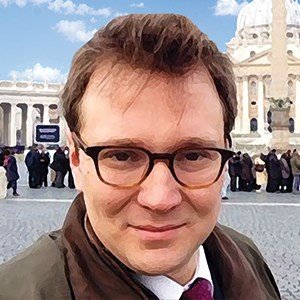View from Krakow
 Poland was always going to require some deft tightrope-walking by Pope Francis. The Polish Church embodies many of the elements of Catholicism he most wants to see reformed, and many of its bishops are resistant, even hostile, to the more open direction that marks his papacy.
Poland was always going to require some deft tightrope-walking by Pope Francis. The Polish Church embodies many of the elements of Catholicism he most wants to see reformed, and many of its bishops are resistant, even hostile, to the more open direction that marks his papacy.
He went out of his way not to upbraid them publicly, as he had done during recent meetings with Italian, Mexican and United States’ bishops, opting instead for “informal discussions” held behind closed doors.
The transcript released on Tuesday revealed that the Pope urged the Polish bishops to be outward looking and pastorally minded, and to ensure that parishes were places of welcome; he lambasted parish secretaries who scare people off as “disciples of Satan”.
The Vatican insisted there was nothing unusual in making the meeting with the bishops a private occasion – but the decision was taken suspiciously late in the day. The official programme of the Pope’s itinerary had announced that Francis would be giving a speech to the bishops when he met them in the cathedral in Krakow. It was even listed as speech “number two” in the programme.
Now he’s back in Rome, Francis’ thoughts will be turning to who he should appoint as successor to Cardinal Stanislaw Dziwisz, the long-time former secretary to John Paul II and Archbishop of Krakow since 2005 – who is already two years past retirement age.
The Pope is well aware of the Church’s elevated status in Polish society. The population is 90 per cent Catholic and the hierarchy expects to be listened to. The back story, of course, is the heroic role the Church took in freeing Poland from Soviet domination; but little has been done since by way of renewal.
Until now, the hotly tipped candidate to succeed Dziwisz had been Cardinal Stanislaw Rylko, who runs the Vatican’s laity council, the very body responsible for World Youth Day. His appointment would have been convenient, given that the laity department is going to be merged into a new dicastery. But the 72-year-old cardinal has made it clear he does not want to transfer to Krakow, and Francis may well now be thinking the same thing – and casting around for a younger and more progressive candidate.
One of the big focuses for World Youth Day is always the promotion of vocations to the priesthood and religious life. It’s also got a reputation for being a place where young people fall in love and go on to get married; but while there’s no official matchmaking service for the latter, there’s certainly a fairly heavy formal operation aimed at the former.
In Krakow, there was a designated vocations centre given over to various local churches, religious orders and other groups, setting out their stalls. Everyone from the Carmelites to the Oratorians was here. Even Alpha, the hugely popular “introduction to Christianity” course, which started in the Church of England, had a presence.
Right beside the stand of the Bishops’ Conference of England and Wales was their French counterparts – “no Brexit when it comes to vocations”, as the wags had it. Both conferences have a similar strategy, which focuses more on every individual’s discernment to his or her calling than on “recruitment”. This approach is more common these days in Western European countries. They, of course, are also the countries where priest numbers are in decline.
Where vocations are more plentiful, there tends to be less in the way of a national, co-ordinated strategy. In Poland, for example, which has around 7,000 trainee priests, each diocese has its own seminary. This insularity rings alarm bells among some. If the history of Ireland’s Church is anything to go by, lots of priest recruits but not much emphasis on discernment is a recipe for trouble in future.
After Krakow, the World Youth Day jamboree moves next to Panama in 2019. Inhabited by just four million people, the Central American country is expecting to welcome a number of visitors equivalent to roughly a quarter of its population, if not more (about 1.6 million people attended the closing Mass in Krakow last Sunday).
While organisers are promising a party atmosphere of “sun, sea and salsa” in three years’ time, there are questions about how a small country can handle the massive logistical challenge of organising a World Youth Day.
Panamanian Cardinal José Luis Lacunza Maestrojuán responded by observing that similar concerns were raised when the country was given control of the Panama Canal – yet, he pointed out, the canal was well managed and had even been expanded.
Nevertheless, World Youth Day requires years of preparation and close co-ordination between the Church and state. There is also the expense: the event in Krakow cost 50 million zlotys (just over 12 million euros), although this figure will be offset by the income generated from tourism.
After WYD Madrid in 2011, a study by the auditors PricewaterhouseCoopers revealed that the event had generated 354 million euros in income against a cost of 50 million euros. It’s safe to assume there will be a few more World Youth Days.


 Votes : 0
Votes : 0









